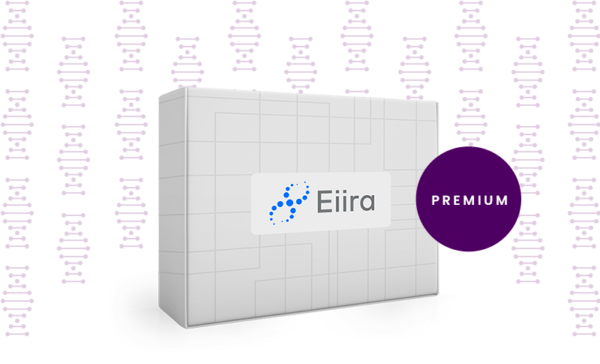
As there are different types of, or purposes for, a DNA test, there are also several different answers to that question. You may be participating in a research study, want to know if you are the biological father of a child, want to do ancestry research or you want to know if you have an increased risk of disease or have a genetically caused disease or condition. Depending on the type of DNA test, there are also different types of actors who perform the test. It can either be a college, a university, an authority, a hospital or a private vendor. Certain risks will therefore be affected by who performs the test.
What are the benefits of a DNA test?
With the help of a genetic test, you can get answers to the questions you have about, for example, your origin, whether any health problems have a genetic cause or whether you have an increased risk of certain diseases, such as cancer.
If you have a history of various health problems, it can be a relief to get clarity on what is causing it. It can also lead to receiving more adequate treatment for your symptoms and to finding others with the same syndrome or gene mutation. The National Association of Rare Diagnoses is an interest organization for individuals whose symptoms have genetic causes but who belong to a larger disease group.
Knowing that you have an increased risk of a disease, due to genetic vulnerability, can lead you to make various lifestyle changes. Many diseases or conditions can be prevented or partially prevented by, for example, not smoking, maintaining a normal weight, regular exercise and eating a healthy diet. If you have a moderate or high risk of a disease, such as breast cancer, you may be included in a monitoring program or even have your breasts removed. On the other hand, knowing that you do not have an increased risk can be a relief and allow you to live your life without worrying about getting sick all the time.
If you have been told that you carry a hereditary gene mutation, it can help others in your family to also have access to preventive measures if they carry the same mutation. It can also help when making decisions regarding family planning.
What are the risks of a DNA test?
As mentioned above, DNA testing can be used to trace one's origins, which is a positive if that is what one actually wanted. But DNA tests taken for other purposes can provide information about origin that was not requested. The test can, for example, reveal that you are adopted, have a different biological father than the father you grew up with, or that you have half-siblings that you didn't know about before.
A DNA test can also lead to information about something other than what was requested, which is called a secondary finding. It can be compared to taking an X-ray for suspected pneumonia but instead finding cancer in an organ close to the lungs.
As a DNA test can identify hereditary mutations, you will also indirectly receive information about your relatives. It can be difficult to inform your relatives about this because you don't always know if they want to know that they could be a carrier. But if you don't tell them and they get sick, it will also be difficult. Therefore, it is good to really think through whether you will be able to handle this before taking a genetic test. Once you get the result, it cannot be undone.
It is also important to understand that there are many diseases and conditions that cannot be prevented or treated. Carrying the knowledge that you have a high risk, without being able to do anything, can be very hard.
Could the result from a DNA test be wrong?
A positive result does not always have to be true since DNA analyzes can generate false positive results. This means that something went wrong in the analysis itself. To know for sure whether a result is positive, you can redo the analysis with a different method to see if you get the same result.
Getting a negative result from a DNA test does not mean that you are completely without risk of developing a disease or condition. Many factors affect the result of a test, such as the scope of the test (that is, how large a part of the genome the test analyzes), the sensitivity of the method used and the fact that today not all genetic variants have been linked to a specific disease.
Also, not all genetic diseases are explained by a single gene mutation, which means that you can have an increased risk of disease even if the genetic test is negative. In many cases, your family history can provide information on whether there is an increased hereditary risk of cancer in someone who has tested negative.
References
- Medlineplus.gov Risks and limitations of genetic testing
- Clevelandclinic.org DNA test and Genetic testing

